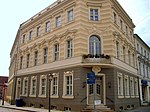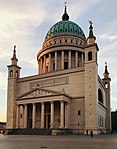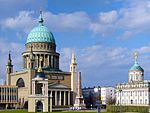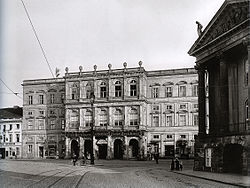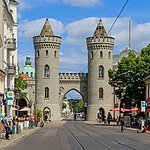Centre for Contemporary History
1996 establishments in GermanyHistory institutesHistory organisations based in GermanyLeibniz AssociationResearch institutes in Germany
The Leibniz Centre for Contemporary History Potsdam (German: Leibniz-Zentrum für Zeithistorische Forschung, abbreviated ZZF) is an interdisciplinary research institute focusing on the contemporary history of Europe, especially Germany, and member of the Leibniz Association.
Excerpt from the Wikipedia article Centre for Contemporary History (License: CC BY-SA 3.0, Authors).Centre for Contemporary History
Schwertfegerstraße, Potsdam Historische Innenstadt
Geographical coordinates (GPS) Address Nearby Places Show on map
Geographical coordinates (GPS)
| Latitude | Longitude |
|---|---|
| N 52.396039 ° | E 13.058069 ° |
Address
Schwertfegerstraße 8
14467 Potsdam, Historische Innenstadt
Brandenburg, Germany
Open on Google Maps
